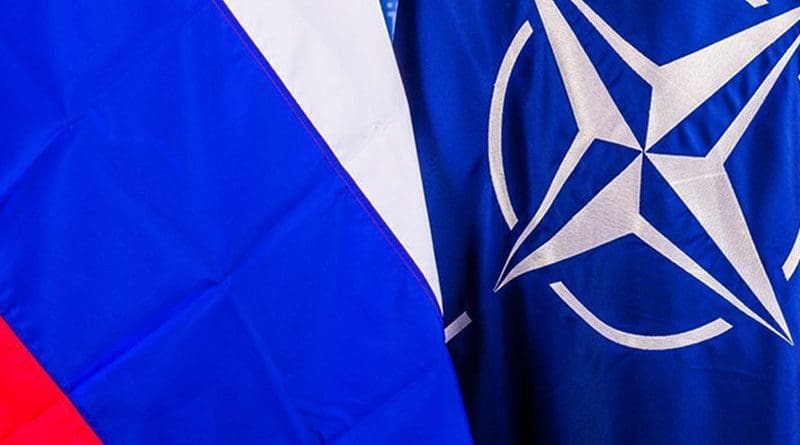NATO’s Intervention Changed Western-Russian Relations Forever – OpEd
By Vesko Garcevic*
Sitting in my office, on March 24, 1999, I could not believe my eyes reading the cable from Brussels, that NATO intervention was to begin that very evening.
As a Yugoslav Foreign Ministry diplomat working in the OSCE Directorate in charge of cooperation with the OSCE Kosovo Verification Mission, I knew that intervention was an option after the peace talks between Serbs and Kosovo Albanians held in Rambouillet, France, ended in disarray.
But, naive as I was, I still believed in a diplomatic solution to the impasse in the negotiations.
The Serbs did not want to sign the Rambouillet Accords and had left the conference infuriated. As former US Secretary of State Henry Kissinger explained in the UK Daily Telegraph on June 28, 1999: “The Rambouillet text, which called on Serbia to admit NATO troops throughout Yugoslavia, was a provocation, an excuse to start bombing.
“Rambouillet is not a document that an angelic Serb could have accepted. It was a terrible diplomatic document that should never have been presented in that form,” Kissinger added.
The action was caused also by grave violations of human rights in Kosovo and by the ongoing ethnic cleansing that displaced over a million Kosovo Albanians from the former Serbian province.
Serbs, on the other hand, highlight the civilian casualties on their side. The number of fatalities in the NATO campaign varies from several thousand, as Serbian official sources say, to 500 according to a report by Human Rights Watch.
The 20th anniversary of the bombing is a good opportunity to take a fresh look at events whose importance has been somehow overlooked, although they had a lasting impact on global affairs.
A just war – or just a war?
The legal aspect of the intervention has been much debated in the last two decades. Lacking a UN Security Council, UNSC, endorsement, the action was dubious in the eyes of those who consider the principle of sovereignty a cornerstone of international relations.
Legally doubtful, it was justified as the only way to end a humanitarian crisis. However, its humanitarian character did not end the controversy. Interpretations of the intervention revolve around two opposite set of arguments. For some, it was “a criminal act, an aggression against a sovereign country and its people”; for others, it was a just war launched to stop a humanitarian tragedy.
Driven by the same logic applied to Kosovo, US and British officials, argued that existing UNSC resolutions related to the 1991 Gulf War and to the later inspections of Iraqi weapons programs justified the Iraq invasion.
However debatable from the point of view of international legal norms, the Yugoslav case highlighted the need for a set of universal principles to determine how to deal with international actors that flagrantly violate universal human rights norms.
In line with Chapter VII of the UN Charter, it was felt that a new doctrine should include provisions for a timely humanitarian intervention.
The world’s failure to prevent genocide in Srebrenica in eastern Bosnia in 1995 during the 1992-5 Bosnian War, its inaction in the case of the genocide in Rwanda in 1994 and the later intervention in Yugoslavia all prompted Kofi Annan, then UN Secretary General, along with the African Union, to pioneer the Responsibility to Protect concept, which the UN endorsed in 2005.
Russia’s UN Security Council veto
For the first time since the fall of the Berlin wall in 1999, Russia vetoed a Security Council resolution. Since the Yugoslav crisis broke out, as a member of the so-called Balkans Contact Group, Moscow had been a constructive partner in joint international efforts to deescalate this bloody civil war.
However, Boris Yeltsin’s Russia had difficulty in agreeing to the idea of military action against its Serbian ally in the Balkans. Yet, its use of the veto had more to do with Russian interests at home than with its alliance with Yugoslavia.
Moscow did not want Kosovo to set a precedent for further interventions, including ones in Russia’s “near abroad”.
NATO and Russia
In retrospect, the Russian veto in 1999 was a turning point in Russia’s relations with the West. This policy shift paved the way to the more confrontational Russia that we know today.
In the eyes of the Kremlin, Russia’s constructive policy throughout the 1990s had proved a strategic mistake; Moscow was not treated as an equal partner and its interests were not respected. The Kremlin concluded that it had lost its relevance by being too cooperative.
March 1999 was a litmus test for Russia’s foreign policy interests and for its sense of honour.
Only 10 days later, the alliance launched its intervention against Russia’s will. If Moscow saw NATO as a challenge before 1999, since those events, Russia has made it clear that it views NATO expansion as a security threat. With its own interventions in Georgia and Ukraine, Moscow not only challenged the West but put a big question mark over further NATO enlargement.
Western interest in the Balkans has dwindled dramatically over the last 20 years. The September 11 2001 terrorist attack on New York, the wars in Iraq and Afghanistan and the growing prominence of China have reshaped US foreign policy.
As was the case with several other interventions in the recent past, the NATO campaign stopped a humanitarian catastrophe, but left unfinished business. And, history tells us that unfinished business is often a catalyst for a new crisis.
*Vesko Garcevic is a former Montenegrin Ambassador to NATO, the OSCE and other international organisations. He is currently a professor at the Frederick S. Pardee School of Global Studies, Boston University.
The opinions expressed in the Comment section are those of the authors only and do not necessarily reflect the views of BIRN.

